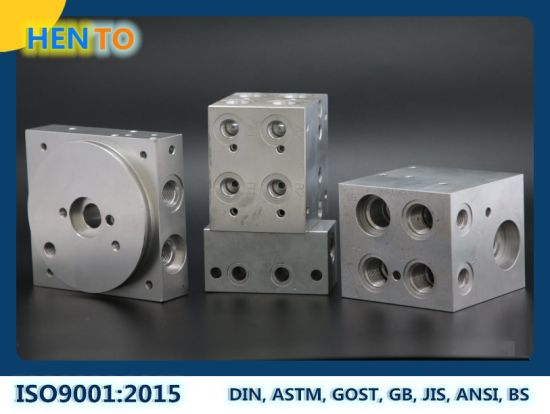Aluminum is one of the most widely used metals in the world, with numerous applications across a variety of industries. One of the primary methods for shaping and manipulating aluminum is through the process of CNC machining, which allows for precise cuts and shapes to be made with ease. However, not all aluminum alloys are created equal, and understanding the different specifications for CNC machining can be crucial for achieving the desired results.

Here are some of the most common types of aluminum alloy specifications for CNC machining:
1xxx Series Aluminum Alloy: 1100, 1200 Aluminum 99%, 1050 Aluminum 99.5%
These aluminum alloys are known for their good formability, corrosion resistance, weldability, and low strength. They are commonly used in household products, electrical appliances, conductive materials, and other applications that do not require high strength.
2xxx Series Aluminum Alloy: 2017 Duralumin Cu4%, Mg0.5%
This aluminum alloy is characterized by its high strength, but poor corrosion resistance. It is commonly used in applications that require high strength, such as aerospace engineering, but may not be suitable for applications where corrosion resistance is a key factor.
3xxx Series Aluminum Alloy: 3003 Aluminum Manganese Alloy
This aluminum alloy is known for its excellent formability, as well as its ability to resist corrosion. It is commonly used in applications that require moderate strength, such as food and beverage packaging, as well as in the construction of various types of buildings and vehicles.
4xxx Series Aluminum Alloy: 4043 Aluminum Silicon Alloy
This aluminum alloy is known for its exceptional welding capabilities, as well as its resistance to corrosion. It is commonly used in applications that require high levels of corrosion resistance, such as marine engineering and other types of outdoor applications.
5xxx Series Aluminum Alloy: 5052, 5083, 5086 Aluminum Magnesium Alloy
These aluminum alloys are known for their combination of high strength, excellent weldability, and resistance to corrosion. They are commonly used in applications that require a combination of strength and corrosion resistance, such as the construction of boats and other marine applications.
6xxx Series Aluminum Alloy: 6061, 6063 Aluminum Magnesium Silicon Alloy
These aluminum alloys are known for their excellent strength and weldability, as well as their resistance to corrosion. They are commonly used in applications that require high levels of strength and stiffness, such as structural components in buildings and vehicles.
Understanding the different types of aluminum alloy specifications for CNC machining is crucial for achieving the desired results in a variety of applications. By selecting the right type of aluminum alloy for the job, you can ensure that your CNC machining project is a success.